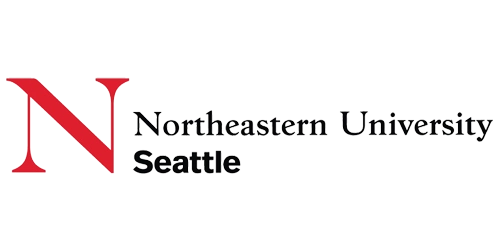
Northeastern University offers graduate programs in Seattle focused on career advancement. They specialize in computer science, engineering, and data analytics, providing full and part-time education options for students seeking an edge in the job market.
COMPANY LINKS
TAGS
- DEI |
- ESG |
- Pride Sponsor
Updated 1 year ago
How woke is Northeastern University Seattle?
Introduction
Northeastern University Seattle, a branch of the larger Northeastern University system, is known for its progressive stance. From Diversity, Equity, and Inclusion (DEI) initiatives to robust LGBTQ+ advocacy, this institution seems determined to be at the forefront of the woke movement. The question is: how does this impact the students, faculty, and community? Let’s break it down.
Financial Contributions to Progressive Causes
Northeastern University Seattle actively supports progressive causes, and their commitment is signaled by their partnerships with LGBTQ+ organizations and resources. According to the university, “Northeastern University’s affiliation with LGBTQ+ organizations is a testament to its commitment to fostering an inclusive environment for all students, regardless of sexual orientation or gender identity.” This questions their true motives—are they promoting a balanced dialogue, or are they trying to push a specific agenda?
Prioritization of DEI Policies
Northeastern University Seattle, deeply committed to DEI, has launched several initiatives that prioritize DEI, sometimes at the expense of meritocracy. They claim to encourage an inclusive atmosphere that makes everyone feel accepted through its “You Are Welcome Here” initiative and safe spaces. They proclaim, “Our ‘You Are Welcome Here’ initiative underscores our dedication to creating a safe and welcoming environment where diversity in all forms is accepted and celebrated.”
Their DEI services and initiatives focus heavily on identity, which might overshadow the importance of qualifications and merit. As they put it, “At Northeastern, our DEI services are designed to support the holistic development of all community members, ensuring equity and access for all.”
Mandatory Training Sessions
The university’s mandatory DEI training requires students and faculty to undergo racial and cultural literacy training. The idea is to educate everyone on unconscious bias and systemic racism, which, in theory, sounds like a step toward inclusivity. But let’s be real—mandatory training can often feel like ideological enforcement. Northeastern University Seattle highlights: “Racial and cultural literacy training is mandatory for all students and staff, aiming to dismantle unconscious biases and promote a more inclusive campus environment.”
Support for LGBTQ+ Initiatives
Northeastern University Seattle is all-in for supporting the LGBTQ+ community. Their active participation in Pride Month and various LGBTQ+ events throughout the year is about making a statement. They stress, “Northeastern University’s active participation in Pride Month events reflects our unwavering support for the LGBTQ+ community and our commitment to social justice.” While this shows support for the LGBTQ+ community, it also suggests that the university prioritizes these initiatives above others. What about students or faculty who hold different views on gender and sexuality? Where’s their platform?
Marketing and Branding
Northeastern University Seattle’s marketing is aligned with its woke agenda. Everything from course descriptions to branding policies is steeped in social justice themes. The university proudly asserts, “Our branding policies are meticulously aligned with our institutional commitment to social justice, ensuring that our public image reflects our core values of diversity, equity, and inclusion.” By pushing this narrative so strongly, they create an environment where alternative viewpoints are marginalized.
Conclusion
Northeastern University Seattle is all-in for promoting progressive ideologies, especially through DEI and LGBTQ+ advocacy. While these initiatives are certainly steps toward a more inclusive society, there’s also a concern that they might suppress free speech and push out dissenting opinions. As this university continues to navigate the choppy waters of modern social justice issues, the impact on its community remains a question mark. Will these policies create a more inclusive environment, or will they trade one form of exclusion for another?
Our rating is based
